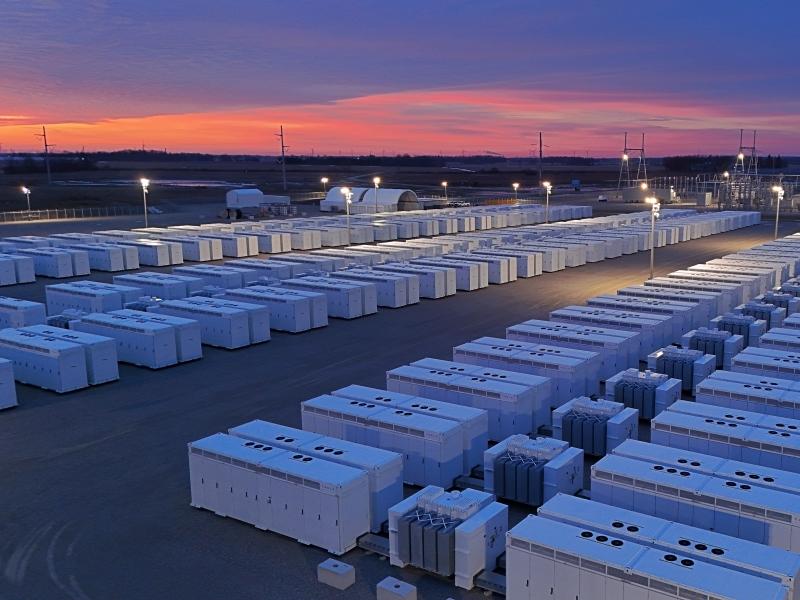
A report by independent think tank Quebec Net Positive (QNP) found that small- and medium-sized enterprises (SMEs) in Quebec have been slow to adopt sustainable practices as part of their overall business operations.
Despite a general awareness of the need to implement policies aimed at reducing carbon emissions, SMEs have yet to prioritize such action in the face of negligible incentives, economic and operational uncertainty, and a lack of support from larger corporations.
The absence of these support mechanisms has left SMEs struggling to "integrate climate action" into their strategic decision-making policies and is a major cause for concern.
These are some of the principal conclusions of Quebec Net Positive's SMEs in Transition report, released on Jan. 31, that sought to identify key trends among SMEs in transitioning toward a low-carbon economy.
A need for greater clarity
The research project, conducted with the support of the federal government and Laurentian Bank, is designed to provide insight into the SME manufacturing sector and accelerate progress toward sustainability.
Participating SMEs reported they need greater policy clarity and improved financial incentives from the Quebec government to better identify "the most profitable and relevant actions" that would help establish a thriving low-carbon business environment.
"It is vital for the whole of the Quebec economy that its nearly 250,000 SMEs, which employ over two million workers, are aware of the risks and opportunities of the significant economic transition underway, and successfully engage in it.
"We look forward to the second year of our collaborative action research activities . . . to learn together, build bridges and take one more step towards transition," Anne-Josée Laquerre, executive director and co-founder of Quebec Net Positive, said in remarks accompanying the release of the report.
SMEs are 'stuck in the value chain'
One of the main structural components to the development of a sustainable economy is establishing links between the vast number of companies that are part of complex value chains. This is the challenge faced by SMEs still learning to adapt to the imperatives of a low carbon economy.
"SMEs need to step up and start reducing greenhouse gas emissions," Laquerre declared in an interview with Sustainable Biz Canada. "But they are kind of stuck in the value chain — it's almost impossible for them to act on an individual basis. We need to have movement within the value chain, which means that the larger companies at the top of the value chain must start changing their practices.
"They must demonstrate a willingness to lower their carbon emissions and integrate SMEs into their value chain because if they leave the SMEs on their own, there will be no possibility of meeting our GHG (greenhouse gas) reduction targets in Quebec . . ."
SMEs: a vital piece of carbon reduction puzzle
Since its inception in 2016, the non-profit QNP has emphasized the essential role SMEs play in not only the life of the Quebec economy, but the Canadian economy as a whole, accounting for 50.4 per cent of annual GDP.
Further, SMEs employ 88 per cent of Canada's private labour force.
Laquerre argues that in order for SMEs to begin making serious inroads towards reducing emissions, they will need to refine their procurement process to favour low-carbon inputs, switch to sustainable models of growth, and otherwise rely on outside regional or sectoral expertise to entrench sustainability as part of their corporate ethos.
"There's plenty of space for improvement," Laquerre said. "One area involves making sure that company executives and boards of directors are fully engaged in the (sustainable) process. When executives and board management teams and boards are engaged, there is greater implementation of climate action . . . We need leaders across the business community to acquire the kind of climate literacy that convinces them of the benefits of decarbonization.
"Another key area we have identified is that when a company has access to environmental expertise, they implement significantly more climate action than otherwise. So accessing the right expertise at the right time is key.
"There are many people involved at the regional level and also on a sectoral level that already have built a trustful relationship with small- and medium-sized businesses. These people in the business ecosystem must be in a position to help . . . SMEs towards the right expertise that they need and that's what we feel right now is a missing link."
SME sustainability action triggers
Closely associated with a sustainable business governance culture is the pressure placed on companies by new generations of employees exhibiting far higher levels of environmental consciousness.
"When we have asked Quebec companies that are implementing sustainable actions to explain their principal trigger factors with respect to such policies, we discover two prime triggers.
"First is that they are taking such actions because of a general belief that they want to be part of the solution and understand the urgency of taking measures to reverse the effects of climate crisis.
"Interestingly, the second factor is the awareness and sensitivity of employees and managers at all levels of the need for emissions reductions measures. When top management is listening to employees and benefitting from their ideas as to sustainable practices, there is a greater likelihood that the business will be following a net-zero pathway," Laquerre said.
Another important conclusion drawn by the report is that those SMEs with a demonstrably higher level of sustainable implementation have been those which export to Europe and are obliged to follow strict compliance standards.
"Quebec SMEs operating exclusively in local markets show lower levels of sustainable implementation. There is a significant gap between those that export indirectly or directly and whether they are part of a sustainable supply chain that is already in place," Laquerre said.
The role for larger companies
Laquerre believes that large scale enterprises, especially those listed on stock exchanges, will play an increasingly important role in activating sustainable supply chains.
"The new ISSB (International Sustainability Standards Board) requirements mean that big companies will need to disclose more information publicly, which means they will be turning to their suppliers and explaining that they need their help in improving their sustainability performance by understanding what is going on in my supply chain.
"This will in turn create a more conducive business environment for SMEs to introduce sustainable measures. Large companies will ask SMEs, 'Hey, how can I help you so that you can help me . . .?'"
Finally, another important takeaway from QNP's research is that SMEs which are actively engaged in sustainable practices are not being rewarded for their efforts.
"Right now the government is still making purchase decisions on the basis of lowest price," Laquerre observed.
"This is not giving an incentive to Quebec SMEs. So these SMEs are asking the government to adjust their procurement policies to favour those who are aligned on the sustainable pathway."










